Shanghai's elderly never too old for school
SHANGHAI — At first glance, the sight of students shuffling from class to class at Shanghai Normal University (SHNU) could be a scene from any university — until one notices that some of the students are old enough to be the grandparents of their peers.
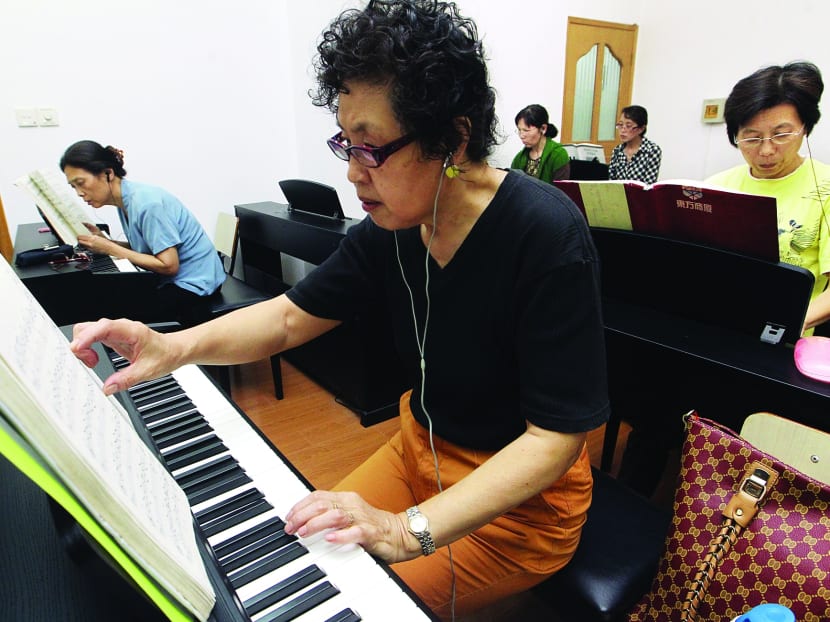
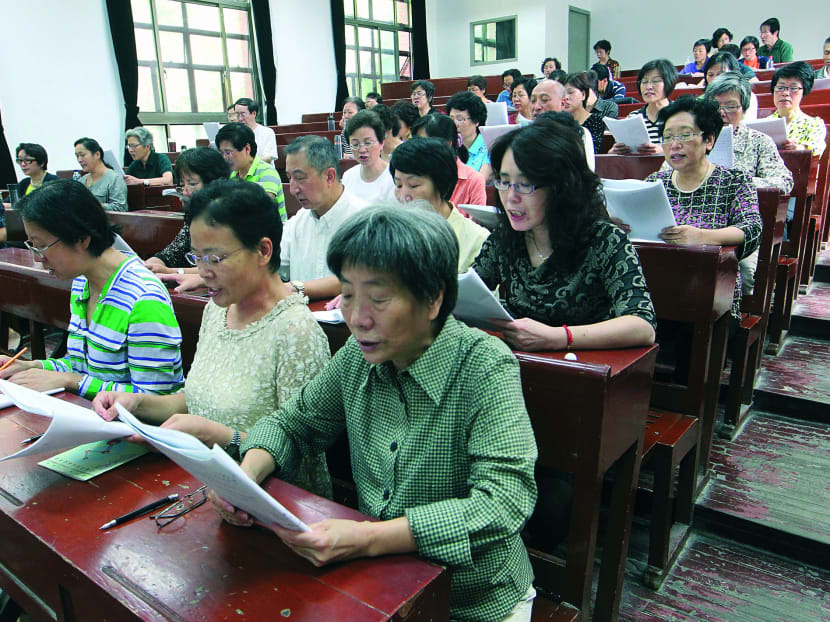
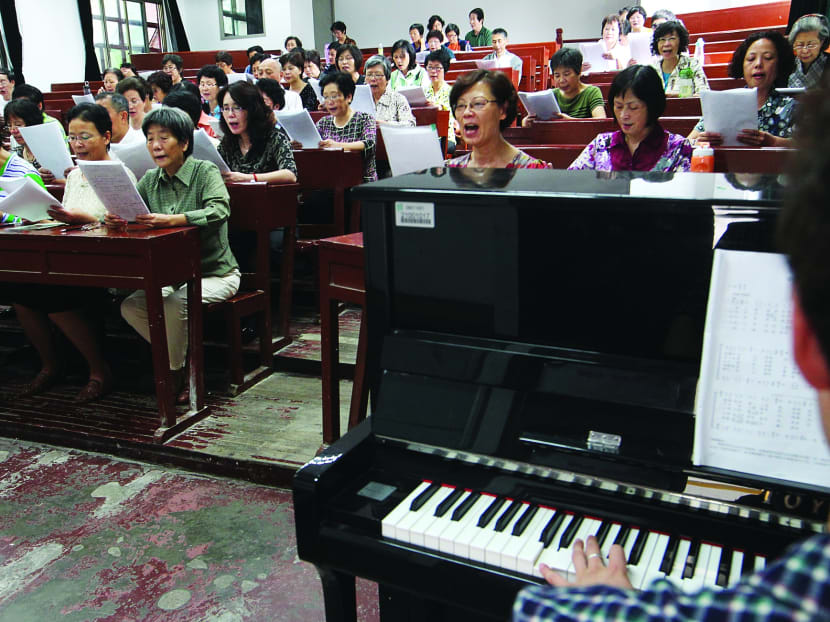
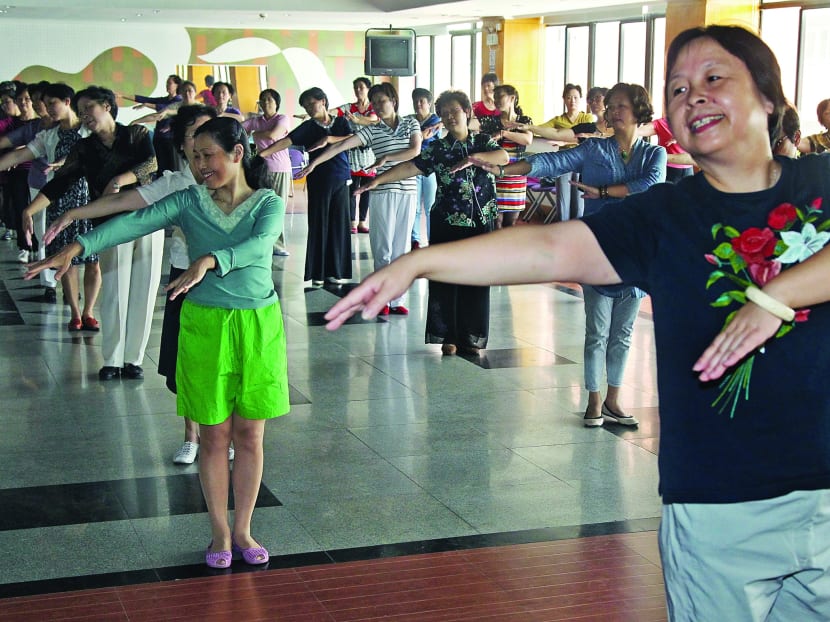
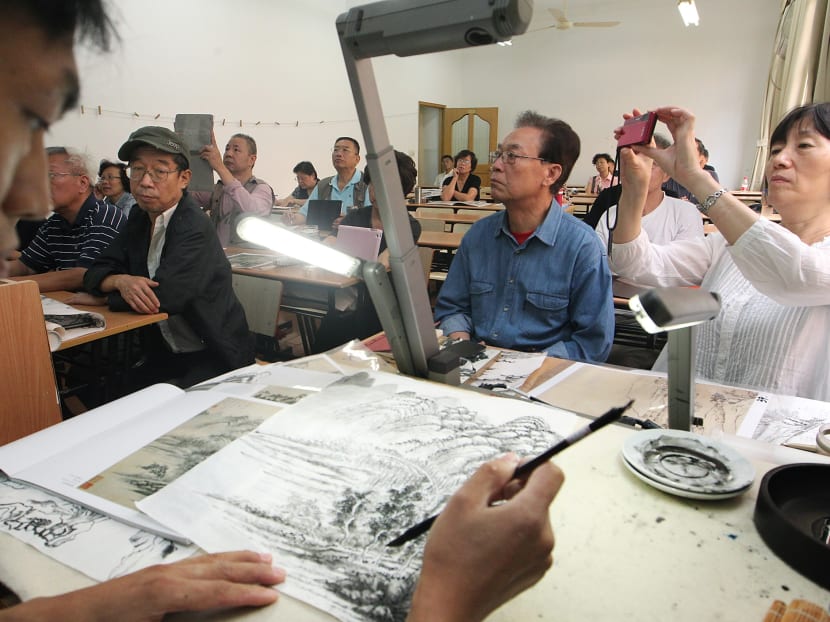
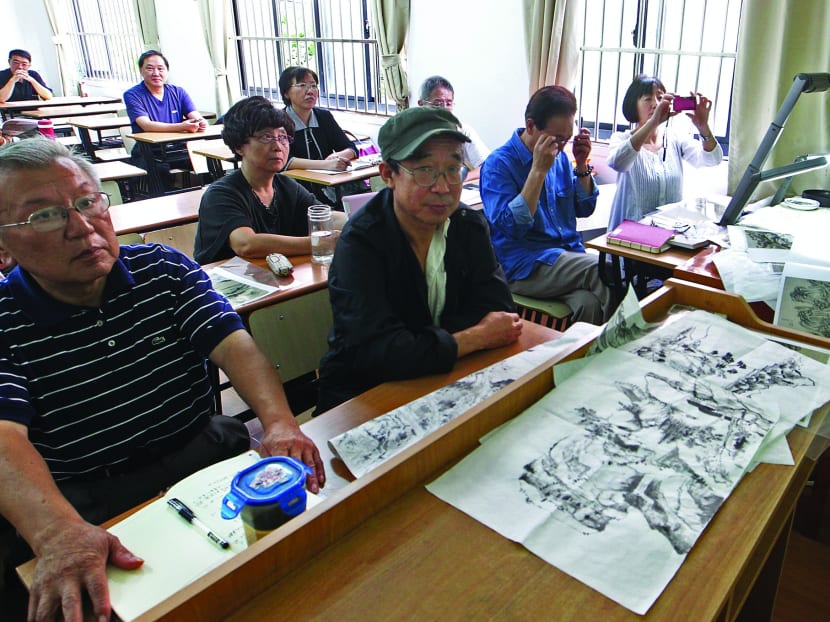
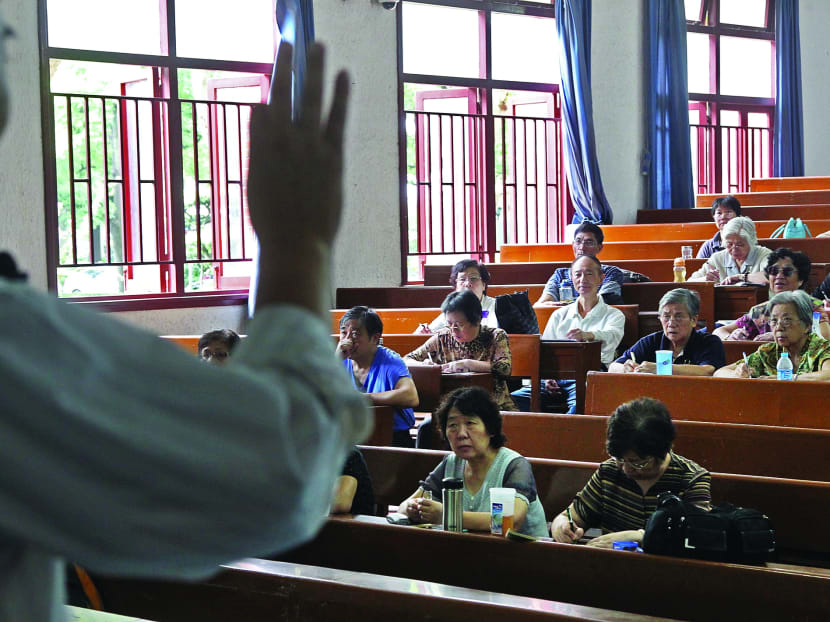
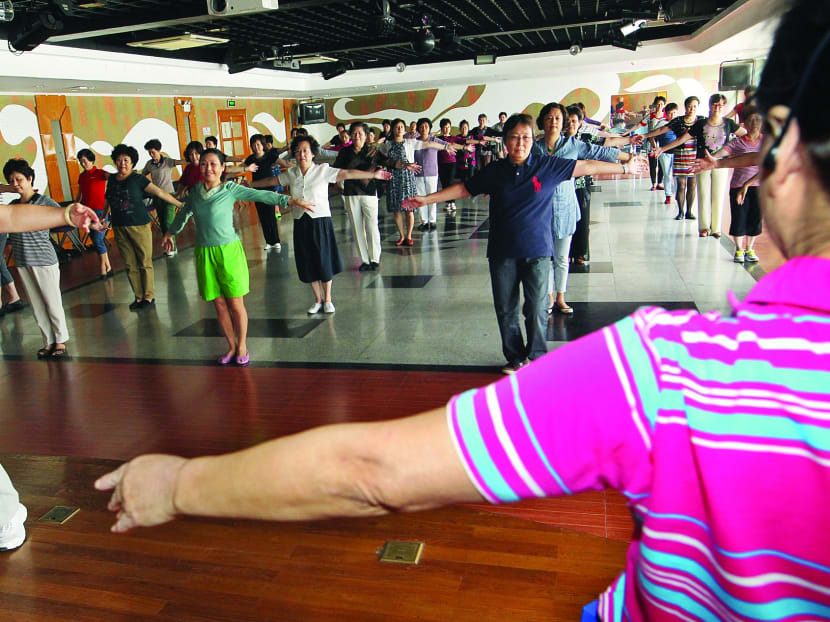
SHANGHAI — At first glance, the sight of students shuffling from class to class at Shanghai Normal University (SHNU) could be a scene from any university — until one notices that some of the students are old enough to be the grandparents of their peers.
The seniors, aged between 55 and late 70s, are enrolled in the Shanghai Normal University of the Elderly. Some are there to make up for lost opportunities in their younger days, others are looking to stay active, socialise, and simply learn something new.
The university shares the facilities of SHNU, located near Shanghai’s city centre. Seniors can take courses on film, dance, languages, photo editing, art and poetry appreciation and even tourism, which teaches useful terms needed when travelling abroad among other things.
Seminars where renowned professors hold discussions on current affairs and history are also regularly conducted, allowing the seniors to feel connected to society.
“I’m still interested in politics and the goings-on of society but since I’ve retired, it can be difficult to find people to discuss it with. Such classes make me feel that I’m not redundant,” said Mr Hu Ming, 69, a retired professor.
Such universities — which can be found throughout China — have their humble beginnings in the ’80s, when groups of elderly folk would come together to learn singing or dancing or other skills. It was only in 2003 that the Shanghai authorities officially opened a university to meet the growing demand.
In Shanghai, there are now five universities for seniors and more than 280 schools at the district and community levels. They serve more than five million seniors, or about 24 per cent of Shanghai’s population.
Such institutions serve as important platforms for seniors to socialise as China becomes increasingly urbanised and more live in apartments. “People tend to keep to their own homes and not come out to interact. A university like this helps with the social needs of the elderly,” said Mr Zhuang Si Cong, Vice-President of Shanghai Normal University of the Elderly.
Tuition fees are kept affordable at about 100 yuan (S$62) to 300 yuan per class each semester. The fees encourage seniors to stay committed and cultivates a sense of “belonging”, said Mr Zhuang.
When this reporter visited the campus in September, there were seniors singing an old wartime love song accompanied by a teacher playing the piano. In another class, seniors conversed with one another using the English phrases they had just learnt.
The university is staffed by 13 seniors who are mostly retired teachers from the SHNU. Others are retired professors or teachers, or students studying for a doctorate or Masters. The classrooms are spread out across the main university campus and are usually located on the first and second floors for easy access.
Some courses can be completed within a 16-week semester while others, like piano lessons, take up to eight or nine years to complete. There is no limit to the number of courses a person can take and no minimum qualification is needed. There are no formal examinations and the university does not award certificates.
Last year, the Shanghai Municipal Education Commission’s (SHMEC) Lifelong Education Department started a life-long learning certification programme for seniors — complete with a graduation ceremony and academic attire — for completing certain classes and earning about 20 to 30 credits. About 70 seniors have graduated from the programme since.
Such a programme ensures that the elderly choose classes outside their comfort zone and helps promote movement within the courses offered, freeing up space for other elderly to learn, said Mr Zhuang Jian, the department’s director.
He added: “It also gives those elderly people who have never donned a graduation gown a chance to do so. We even had a senior over 70 years old whose child flew back from abroad to attend the graduation ceremony.”
KEEPING PACE WITH EVOLVING NEEDS
As the population ages, demand for education opportunities has risen, as has expectations of higher quality.
To address this, the SHMEC Department of Lifelong Learning is encouraging the formation of community learning groups, where seniors with similar interests come together to learn by hiring their own teachers or simply teach one another, for a more casual and intimate learning process. Currently, there are 3,000 such groups — initiated by the community — in Shanghai and the government hopes to increase this to 10,000 in five years.
Education has also gone online, with a dedicated learning portal started by SHMEC providing online lectures and interactive lessons on subjects like health care and travel. This has proven popular — the website boasts 610,000 registrations for courses and about 350,000 registered seniors.
With about 50 per cent of the senior population expected to possess university qualifications and above in the near future, schools are scrambling to create programmes that would better cater to this group. The Shanghai government is currently studying the needs of the better-educated elderly, according to the SHMEC.
It is also looking at teaching methods, and the possibility of standardising them. For example, younger teachers tend to teach at a faster speed or ask their seniors to stand up and answer questions which makes them “nervous”, said the SHMEC’s Mr Zhuang.





